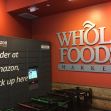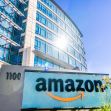Numerous Whole Foods customers have launched two class-action suits targeting Amazon after the giant retailer and delivery service removed free shipping for Prime customers. The pair of lawsuits are claiming it’s illegal for Amazon to offer a service for free and then suddenly stop that service and start charging customers.
Both lawsuits were filed in US District Court in Seattle, claiming Amazon inappropriately added an extra $9.95 in delivery fees for Whole Foods groceries that were once free for Amazon Prime members.
The lawsuits allege that Amazon improperly tacked on an extra $9.95 fee for Whole Foods deliveries, since Prime members were offered free delivery from Whole Foods if they ordered via Amazon, until October 2021, when the fees were unexpectedly tacked on to orders. Amazon announced it would deliver in two hours, free, Whole Foods products in 2018, for orders at least $35.
Amazon disrupted the entire food industry in 2017 when it purchased Whole Foods for $13.7 billion. Large food retailers such as Walmart, Kroger, and Sprouts all launched robust delivery programs after Amazon took over Whole Foods.
With the two new class-action lawsuits against Amazon, the food industry is once again in the crosshairs of the giant retailer’s actions. If the new suits win, major food industry retailers who offer delivery services may be impacted.
Both Amazon lawsuits are seeking a refund of Prime memberships fees, though each suit offers both similar and different allegations from the other.
The first of the class action lawsuits against Amazon claims the new $9.95 fee for Whole Foods Delivery is a violation of Washington State’s Consumer Protection Act and its legal contract with customers. The complaint states Amazon should have either offered a refund for customers’ Prime memberships or reduced its annual fees.
In this first class-action suit, court documents state, “Hundreds of thousands, if not millions, of Amazon Prime members paid for a membership because they wanted to take advantage of Prime's free Whole Foods delivery service. As a result of Amazon's unfair business practices, consumers paid $119 for a service that was unfairly terminated.”
The second class lawsuit was filed on July 5 by a California Amazon Prime member who alleges Amazon is misleading older and new customers by implying their Delivery of Whole Foods products is free for Prime members.
In this lawsuit, the plaintiffs point to Amazon’s behavior as a bait-and-switch scheme. Court documents state, "In addition to Amazon's false representations that Prime members will receive 'FREE Delivery' and 'FREE 2-Hour Grocery Delivery,' Amazon engages in a bait-and-switch advertising scheme by not disclosing the $9.95 service fee along with the advertised price of the Whole Foods grocery items.”
As the first class-action believes, Amazon acted illegally by taking away the free Whole Foods delivery perk.
"Amazon has engaged in unfair business practices, breached its duty of good faith and deprived Prime members of the benefit of their bargain," the first lawsuit states.
The second class-action lawsuit against Amazon accuses the company of drip pricing, which is when a company adds hidden fees to purchasing costs.
Court documents state, "Amazon’s practice of initially advertising only part of a price and then later revealing the service fee as the consumer completes the buying process has been labeled 'drip pricing' by the Federal Trade Commission (FTC). Amazon uses drip pricing to bamboozle consumers using the tried and true classic, and unlawful, bait advertising scheme.”
The initial class action suit against Amazon also claims the company saw record-breaking profits despite offering free delivery of Whole Foods products to Prime members. The court documents allege Amazon reported a 70 percent increase in earnings from January - September of 2020, and that the company shared information that they had 200 million paying Prime memberships during this time. Court documents also claim Amazon earned about $7.6 billion from subscriptions in the first quarter of 2021.
The Plaintiffs in the first class-action suit said Amazon sent out a mass email about their tacking on a $9.95 fee in September 2021, which would be a national new charge.
The plaintiffs in this class action lawsuit state, “Not only was a contractual benefit that Prime members were entitled to under their $119 membership unilaterally revoked, but Amazon offered no partial refunds to members after modifying the contract. The ‘changes to your membership’ link provided to Prime members in the September 24, 2021 notification email routed consumers to Amazon Prime’s cancellation policy.”
Simultaneously, the cost for an Amazon Prime membership has gone up, from $119 to $139 annually.






